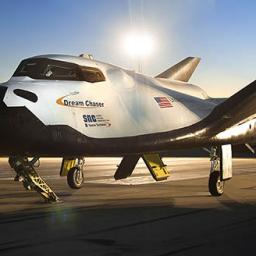Why Boeing beat SpaceX and Sierra Nevada in NASA "space taxi" competition
 Shortly after NASA awarded Boeing and SpaceX mult-billion dollar contracts in the "space taxi" program, Sierra Nevada Corporation filed a lawsuit against NASA challenging its loss to Boeing, despite submitting a cheaper bid. While the lawsuit caused NASA to immediately request Boeing and SpaceX to halt work on their vehicles, they've now reversed course and requested the programs be restarted. NASA stated that a delay in providing transportation services to the ISS crew will put the crew at risk and will highly affect several operations of the ISS. This delay may even result in the US failure to fulfill the commitments it made in its international agreements.
Shortly after NASA awarded Boeing and SpaceX mult-billion dollar contracts in the "space taxi" program, Sierra Nevada Corporation filed a lawsuit against NASA challenging its loss to Boeing, despite submitting a cheaper bid. While the lawsuit caused NASA to immediately request Boeing and SpaceX to halt work on their vehicles, they've now reversed course and requested the programs be restarted. NASA stated that a delay in providing transportation services to the ISS crew will put the crew at risk and will highly affect several operations of the ISS. This delay may even result in the US failure to fulfill the commitments it made in its international agreements.The lawsuit is starting to result in private internal documents coming out of the woodwork and into public view. While many speculated that NASA was fully behind SpaceX and only granted Boeing a chunk of the contract for political reasons, it seems that Boeing was ranked above SpaceX in every major category, from technical maturity to management competence to likelihood of sticking to a timetable. Despite SpaceX's historic achievement of becoming the first commercial entity to put a capsule into orbit and ferry NASA cargo to and from the international space station, the agency had somewhat less assurance in the company's ability to perform, based on performance on its own preliminary contract.